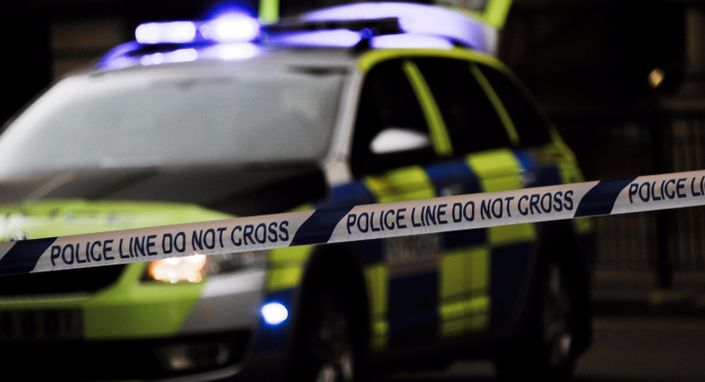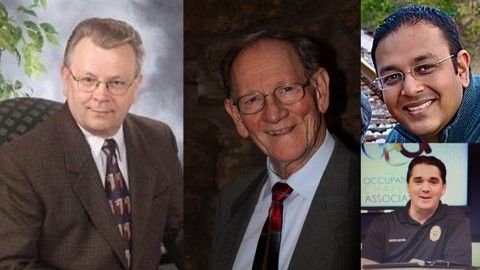Frequently Asked Questions
What is an "OCA chaplain"?
An "OCA chaplain" is a term used to describe members of the non-military team of chaplains primarily for the United Pentecostal Church International whose primary area of expertise is spiritual care.
OCA chaplains are part of the Office of Education and Endorsements and who have training, experience, and certification in the area of spiritual care. They are always available to give spiritual support to patients, family members, and staff of any or no specific religious tradition in the city, area, or department that they serve in.
What benefits are there for being an OCA chaplain?
Ministry to the hurting and people in crises is a unique form of ministry, which as an ordained minister, I found myself unprepared to meet. Most of our Bible schools do not teach the skills you will learn with OCA. Training such as “Unexpected Death Notification”, Critical Incident Stress Management”, “Psychological First Aid” and many others will give you the tools to start working as a chaplain.
While there is no substitute for the experience everyone has to start somewhere and with the tools and mentors to call and help, you will be on your way to gaining that experience.
Next, you will join a great fellowship of chaplains that is recognized by the United Pentecostal Church which brings ecclesiastical credibility that can lead to paid positions for your ministry.
How do I get in touch with a chaplain mentor?
The fastest way to get in touch with a chaplain mentor is to contact one of our directors or assistant directors in the area that you are working in. For Law Enforcement/Fire Fighters you can contact either Director Mark Hattabaugh at pastor@the-pentecostals.org or Assistant Director John Putnam at pastor@pentecostalssc.org
Are chaplains the same thing as pastors or other clergy members?
Not exactly. While most clergy members have pastoral care experience in their communities of faith, all chaplains must be trained, experienced, and able to work outside their faith community in clinical/non-clinical, on location in many setting, in crisis/non-crises, and disaster settings.
What does a chaplain do?
Simply stated, chaplains offer spiritual care in the clinical and non-clinical settings. "Spiritual care" has to do with issues of meaning, hope, and transcendence that are often more pronounced during illness, injury, birth, and death.
Spiritual care helps people address questions such as:
• Why is this happening?
• What does this mean?
• How do I make sense of this?
• Where will this take me?
• What gives me the ability to cope?
• What gives me comfort? What next?
For some, spiritual care also includes religious support. For others, it means providing a non-anxious, caring presence in the midst of an anxious time or experience
• Chaplains offer reflective listening and non-judgmental emotional/spiritual comfort
• Responding to emergencies
• Providing bereavement support at the end of life care
• Helping with crisis support
• Communicating information and providing education
Where do OCA chaplains work?
OCA chaplains work in different areas of non-military settings. While some OCA chaplains specialize in areas such as Law Enforcement or Hospital settings most OCA chaplains have time for people inside and outside the scope of their specialized areas. This would include family members of clients, etc.
When is a chaplain called?
While many chaplains are on call or visit weekly in the area of their service, all chaplains desire to be called whenever you need a little extra support.
Chaplains can:
• Lend a listening ear
• Pray
• Help you get in touch with your own clergy or religious community;
• Help you sort through decisions and/or concerns
• Stand by you in difficult moments or celebrate with you in joyous moments
Who can receive chaplains' services?
All patients, staff and/or family members who need support can receive chaplains' services. Chaplains do not limit their care based on religious preference. They have both the training and experience to offer support for a broad range of people, including those with specific religious preferences and those with no religious beliefs, traditions and/or preference. Chaplains are available to work with anyone concerned with issues of meaning, hope, loss, as well as other similar concerns.



